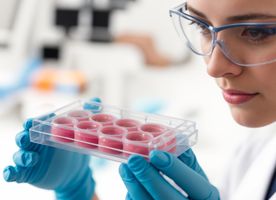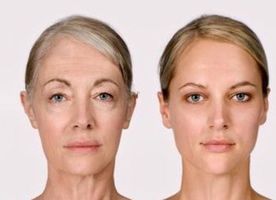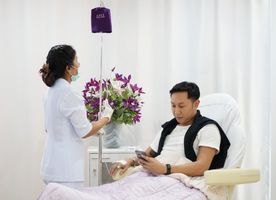Regenerative Medicine in Bali
Search and Compare the Best Clinics and Doctors at the Lowest Prices for Regenerative Medicine in Bali





































































































































No Time?
Tell us what you're looking for and we'll reach out to the top clinics all at once
Regenerative medicine is a fairly new field of study that focuses on developing and applying new treatments to heal organs and tissues, as well as restore function due to disease, injuries, defects, or ageing by stimulating the body’s own regenerative capabilities. The human body has the natural ability to heal itself in many ways. For example, the liver can grow back to its original size after transplantation and our skin can repair itself after a cut. Regenerative medicine holds the promise of using this naturally occurring ability for a wide range of conditions.
Regenerative medicine encompasses a broad range of scientific disciplines, including molecular biology, biochemistry, genetics, and immunology. It goes beyond disease management to search for and discover therapies that can support the body in repairing, restoring, and regenerating itself to a state of well-being. The main goal of regenerative medicine is to find a way to cure formerly untreatable diseases and injuries.
Regenerative medicine can help facilitate healing in numerous conditions. These include, but are not limited to:
- Cancer and blood-related diseases, such as lymphoma, leukaemia, multiple myeloma, and neuroblastoma.Musculoskeletal and spine injuries, such as cartilage loss, disc degeneration, mild to moderate osteoarthritis, muscle strain, tendonitis, and temporomandibular joint (TMJ) disorders.
- Nervous system diseases, such as Alzheimer’s disease, Parkinson’s disease, multiple sclerosis, amyotrophic lateral sclerosis (ALS), and multiple system atrophy.
- Cosmetic reasons, such as to improve skin health and anti-ageing.
The following are some of the most common regenerative medicine procedures available today:
- Stem cell therapy
- Bone marrow transplant (stem cell transplant)
- Platelet-rich plasma (PRP)
- Prolotherapy
- Surgeries for cartilage regeneration.
How Long Should I Stay in Bali?
Your length of stay depends on the type of regenerative procedure you have and your specific condition. For most procedures, such as prolotherapy, stem cell therapy, and PRP, you should be able to leave Bali on the same day. However, it is still recommended that you stay for at least 3 days before you travel home. This is because, in some cases, your doctor may schedule a follow-up appointment to see how your body is reacting to the treatment. After a bone marrow transplant, you may want to stay in Bali for at least 4 weeks.
What's the Expected Recovery Time?
If you undergo stem cell therapy, PRP, or prolotherapy following an injury or for a disease, you may be recommended to rest for a few days, but these recommendations are more related to the injury/diseases and less to the procedure. For other types of regenerative medicine procedures, such as bone marrow transplants, the recovery time can take weeks and even months. Your doctor will likely give you a specific recovery timeline.
What Aftercare is Required?
Aftercare instructions specifically designed for your conditions will be given to you by your doctor. You must follow all of the instructions to get optimum results and avoid complications. Depending on your injury or disease, you may need to attend lifelong regular checkups. If you cannot travel to Bali regularly for the checkups, you should be able to do the checkups with your local doctor at home.
What's the Success Rate?
When performed by qualified professionals, regenerative medicines are proven to be safe and effective. Regenerative medicine is still relatively new, so more research is needed. However, the field has made significant progress and has been proven to have high success rates. All kinds of medical procedures carry some potential risks. With regenerative medicine, the risks include infection, nerve injuries, and tissue damage.
Are there Alternatives?
The alternatives can be different for everyone, depending on the injury/disease and its extent. For example, those with osteoarthritis may undergo joint replacement surgery as an alternative.
This information has been accurately sourced and verified by a medical professional for its accuracy, however, we strongly recommend you to consult with your doctor before pursuing medical procedures overseas.


















